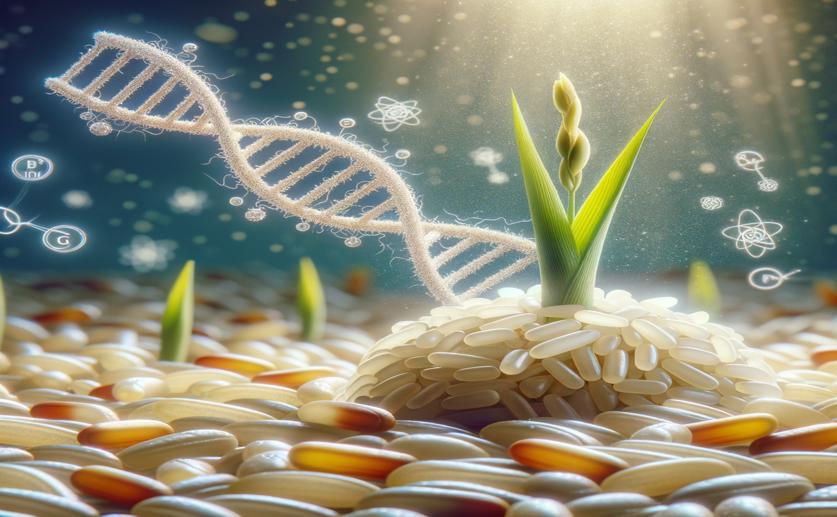
Enzyme Key to Preventing Early Sprouting in Rice
Jim Crocker
19th April, 2024

Image Source: Natural Science News, 2024
Key Findings
- Researchers at Nanjing Agricultural University discovered a gene, OsAAH, that affects rice seed sprouting before harvest
- When OsAAH is disrupted, rice seeds have higher energy levels, which may lead to premature sprouting
- The study suggests that manipulating OsAAH could help breed rice varieties resistant to preharvest sprouting, reducing crop losses
AgricultureBiochemPlant Science
References
Main Study
1) Allantoate Amidohydrolase OsAAH is Essential for Preharvest Sprouting Resistance in Rice
Published 16th April, 2024
https://doi.org/10.1186/s12284-024-00706-y
Related Studies
2) MutMap+: genetic mapping and mutant identification without crossing in rice.
3) ABA biosynthesis gene OsNCED3 contributes to preharvest sprouting resistance and grain development in rice.
4) Endosperm sugar accumulation caused by mutation of PHS8/ISA1 leads to pre-harvest sprouting in rice.
5) Mutations of genes in synthesis of the carotenoid precursors of ABA lead to pre-harvest sprouting and photo-oxidation in rice.



 6th April, 2024 | Jim Crocker
6th April, 2024 | Jim Crocker